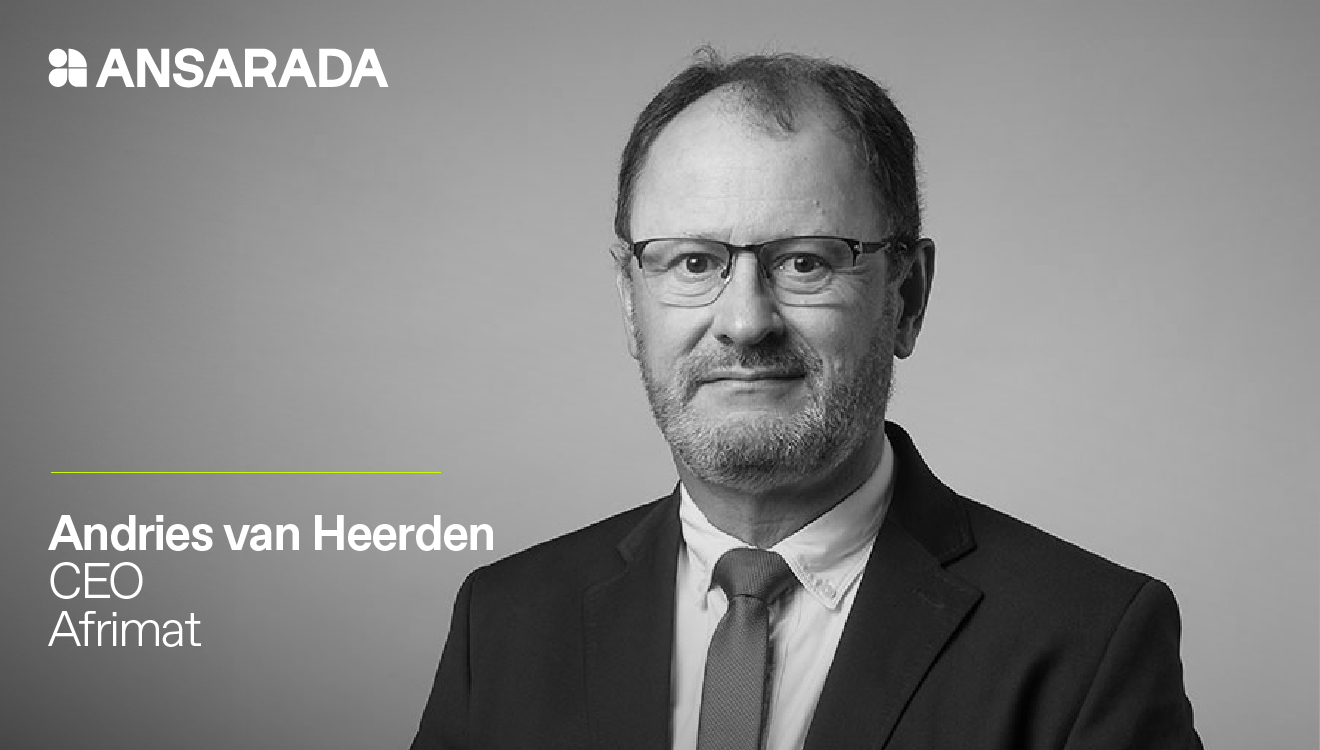From Quarry to Market: Navigating M&A Challenges and Opportunities in the Mining Sector
Andries van Heerden - Afrimat | 2024/2025 Africa M&A Outlook
By ansaradaMon Jul 29 2024

The insights from these seasoned dealmakers underscore the importance of adaptability, innovation, and thorough preparation in navigating the complexities of dealmaking in South and Sub-Saharan Africa. By leveraging creative deal structures, conducting rigorous due diligence, understanding macroeconomic and regulatory dynamics, and focusing on resilient sectors, dealmakers can successfully navigate challenges and seize opportunities in this dynamic market.
Tell us a little bit more about yourself and your career so far.
I’m a mechanical engineer and started my career in the mining industry. Back in the day it was called Iscor Mining. I spent the first couple of years of my career at a coal mine. From there I moved on to a small packaging company for three and a half years and got exposed to smaller businesses and how they operate. I went on to Prima Quarries, where I got the idea of industry consolidation, but my bosses at the time didn’t agree and asked me to leave. I then formed a small consortium with a business partner, and we bought the Lancaster Group in KZN, which was a quarrying business. A year later, the guys from Prima came back, and we managed to sort out our differences, merging the two companies to form Afrimat.
Given the current moderation in inflation and the anticipated interest rate adjustments across sub-Saharan Africa, how do you see these macroeconomic changes influencing dealmaking in the second half of this year?
The important thing is that it lowers the cost of capital and provides more certainty, which will definitely give investors more confidence. This, along with trends around energy, will be a big factor in restoring confidence.
When do you think we’ll see a turnaround in M&A activity? Could it be later in 2024 or not until 2025?
I’m not a corporate finance professional, but given the uncertainties in the world and South Africa, I expect it to be slower this year. Hopefully, by next year, we’ll see more of these fundamentals coming through and helping M&A activity.
What’s likely to drive M&A activity in the mining sector this year?
The big drivers are energy-related minerals. Copper is a big theme now, along with other so-called battery minerals. I think there could be some activity in that space.
What needs to happen for a boost in confidence in the M&A market?
Two things: improved interest rates and macroeconomic conditions, and reduced political uncertainty both locally and internationally. Investors dislike uncertainty, so more certainty will definitely help.
Regarding the valuation gap, how big do you think it is given the market uncertainty? How are dealmakers getting creative with structures like JVs or club deals?
The valuation gap, especially for popular assets like copper, is high. It’s always a matter of supply and demand. Wealthy companies wanting to acquire drive valuations up, forcing smaller companies like us to sit on our hands for now.
What challenges in getting deals over the line require greater focus on due diligence?
In the South African context, it is crucial to evaluate the target firm’s processes and structures that will prevent value destruction during the period between the announcement of the transaction and the final approval for implementation. Additionally, the transaction agreements should protect the buyer in case the seller fails to maintain these structures and procedures during this period.
What areas of due diligence are becoming more of a focus in dealmaking?
Spending enough time analyzing and understanding the market, including downstream aspects, is crucial. In South Africa, factors like community involvement are also very important to understand before doing a transaction.
How is anti-trust or competition scrutiny impacting M&A? What are your expectations for the rest of the year?
In South Africa, it’s a big obstacle, especially for international investors. With our Lafarge transaction, the long approval process destroyed significant value. These public interest elements are a big problem.
Do you expect this to change anytime soon?
I don’t see it changing. Political comments suggest a lack of understanding of the value destruction this causes.
Which markets seem most welcoming for cross-border M&A inflows?
Zambia stands out with its positive and welcoming attitude. Namibia, to a lesser extent, but definitely Zambia.
What advice would you give to other CEOs in the mining and construction sectors for successful dealmaking given current conditions and challenges?
It’s difficult to give advice as each business is unique, but one thing I’ve learned is to ensure the business is managed properly during the interim period while waiting for regulatory approvals to avoid value destruction.